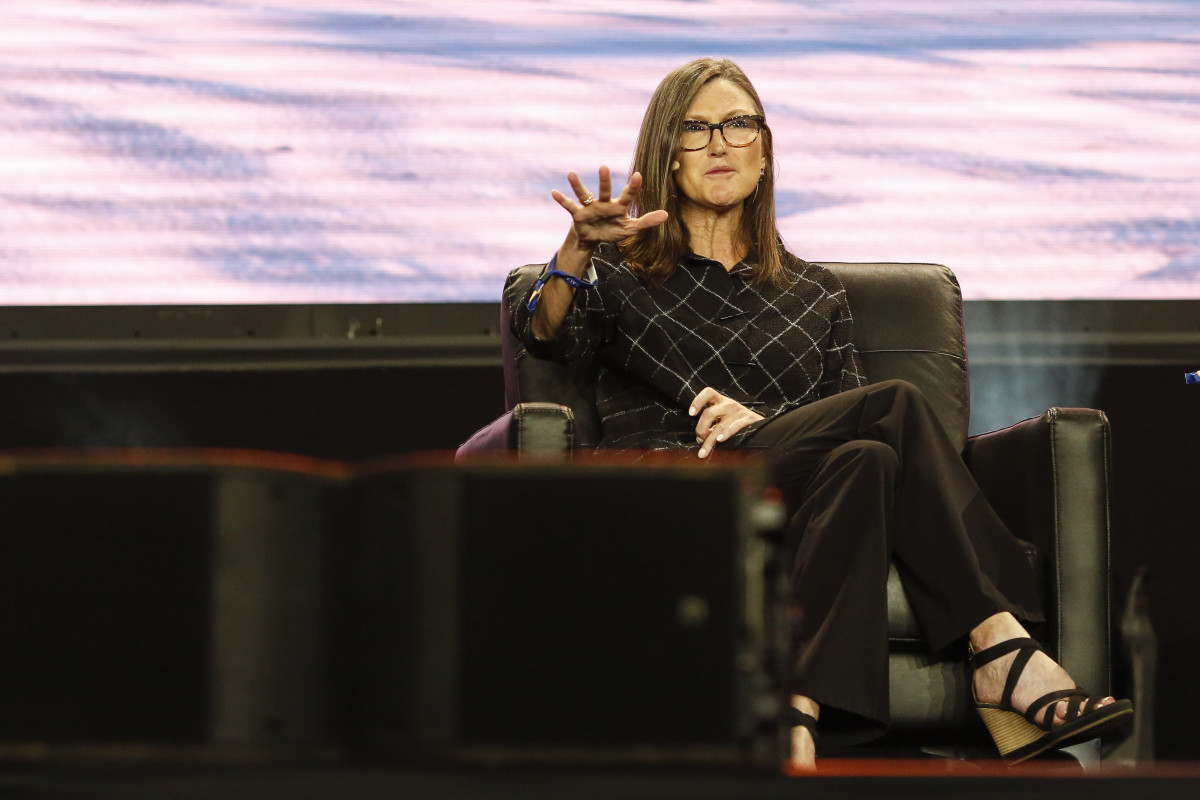
In April 2023, Ark Invest made waves by predicting that Tesla (TSLA) -) would be trading at $2,000 a share by 2027, an increase of more than ten times the stock's value at the time. The company's stock has since grown, but remains nowhere near Ark's bullish prediction.
Speaking to CNBC Sept. 18, Cathie Wood, the CEO of Ark Invest, said that Ark's bear case for Tesla has the car company trading at $1,400 per share by 2027. Both cases are largely pinned on the hope of Tesla's Full Self-Driving technology.
Related: Engineering whistleblower explains why safe Full Self-Driving can't ever happen
"About a third of our valuation is associated with electric vehicles and scaling them," Wood said, citing the growth of new Tesla factories around the world. "That's good; this is all working out."
But two-thirds of this valuation, whether it be at $1,400 a share or $2,000 a share, is centered around autonomous vehicles.
"We think Tesla is in the pole position here in the United States. It has collected more data about our roads than all of the other companies combined," Wood said. "It's a winner-take-most market."
The $600 per share difference between her bear and bull thesis comes down to timing; in the bear case, it takes a little longer than anticipated to get autonomous taxis up and running. In the bull case, it happens fast.
More Tesla:
- Elon Musk On Tesla's Stock "10X-ing" as Cathie Wood Has Predicted
- Tesla Faces a Troubling New Investigation Into Several of Its Most Popular Models
- Elon Musk Explains Final Hurdle in Tesla's Full Self-Driving Tech
This perspective of Tesla, not as a car company but as a tech company, is one that has been echoed by Wedbush's Dan Ives and Morgan Stanley's Adam Jonas alike. But, where Ives' and Jonas' thesis is focused more on the value of Tesla's monetization of its software and services, Wood's thesis is predicated solely on the society-changing impact of autonomous vehicles and taxis, something that is not close to becoming a reality.
Most accidents, Wood said, are caused by human error — "if you take the human being out of the equation and use AI, I think the authorities are going to be persuaded by the data," Wood said, citing a since-disproven 2017 study from the National Highway Traffic Safety Administration that incorrectly found Tesla's Autopilot reduced crashes by 40%.
Wood's thesis remains reliant on the assumption that Tesla's self-driving will soon be better than humans. But as TheStreet reported Sept. 18, there are a number of severe vulnerabilities intrinsic to the methods being used to train a car to drive itself, namely pattern recognition.
"You have to experience to learn and you have to experience over and over again," Michael DeKort, an engineer and Navy veteran, told TheStreet, explaining that pattern recognition, which could take hundreds of billions of miles to create human-equivalent self-driving, is just not feasible. "You have to stumble on all the variations. Two, you have to re-stumble on them hundreds if not thousands of times because the process is extremely inefficient.
"It doesn't learn right away."
If you work for Tesla, contact Ian by email ian.krietzberg@thearenagroup.net or Signal 732-804-1223







